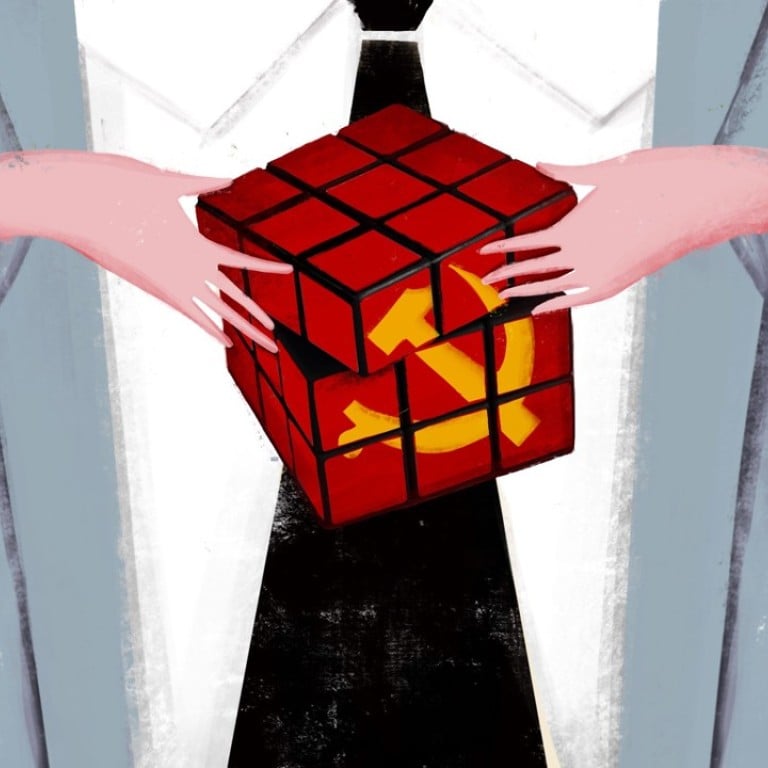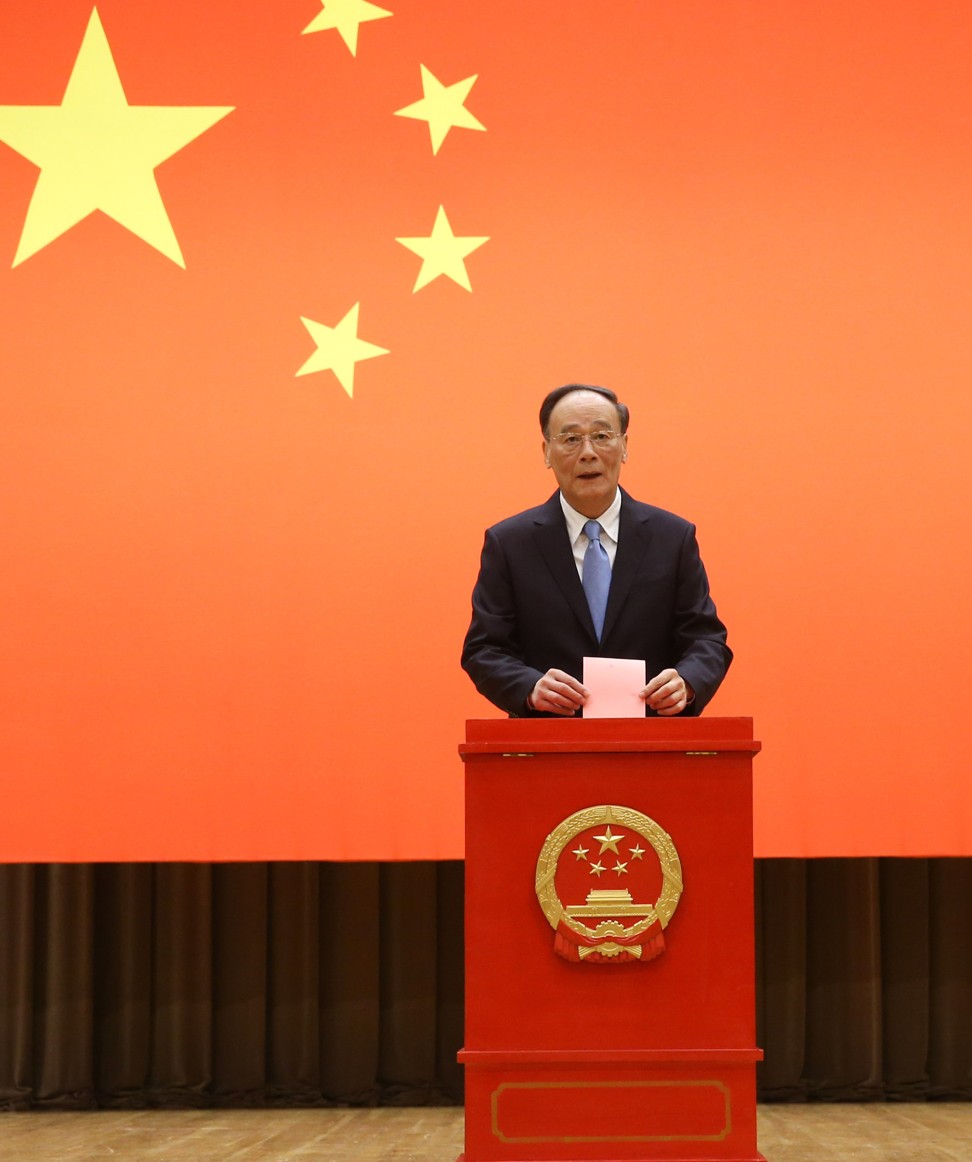
What Xi Jinping’s goals for China say about his focus on personal legacy, just like Mao and Deng
William Zheng says Xi Jinping’s first term was spent on setting the party house in order, aided by anti-graft ally Wang Qishan, and his centenary goal for 2020 ties in nicely with his second term
What’s driving President Xi Jinping’s military modernisation push?
After spending his first term in getting the house in order and his team in place, Xi is now better prepared for the 19th party congress, likely to be held in October, where the top leadership for the next five years or decade would be revealed, a new direction for economic growth would be confirmed and Xi’s political legacy would start to take clearer shape.
One such rule, established by Deng, was the so-called “qi shang ba xia”, meaning leaders aged 67 or younger could remain in the party’s top Politburo Standing Committee for the next five-year term, and those older would have to retire.

Wang is also recognised for his understanding of the Chinese economy, especially the financial sector. He was the first head of China International Capital Corp, and served as chief of China Construction Bank in the 1990s. He earned the nickname of “firefighter” after he resolved a multibillion-dollar bad debt crisis in Guangdong, and took over as Beijing’s mayor during the severe acute respiratory syndrome outbreak in 2003 and defused the health crisis.
Tigers and Flies
No wonder there are murmurs in Beijing that the party should make an exception for Wang, 69, so that he can serve another five years. He is also seen as a great potential candidate to rescue the debt-ridden national economy and find some badly needed growth.
I believe it is likely that Wang would stay on for another term, given his track record, popularity among the people and the political climate in China. Retaining a key ally like Wang would help Xi to continue to consolidate power and achieve his grand political objective for the next five years.
What is Xi Jinping’s ‘Chinese dream’ and ‘Chinese renaissance’?
If we assume Xi, Wang and Premier Li would stay for the next term, then the speculation about whether the seats on the Politburo’s Standing Committee would be reduced from seven to five could hardly have basis, as there would be only two seats for the rest of the party elites to contest. That would simply not be enough to achieve good political balance in China’s top leadership.
Although allowing Wang to stay does not involve the top position, the move could still be strategic to test the waters for further changes in the rules for politics at the highest level, especially the top position.
Watch: Xi Jinping praises PLA on 90th anniversary
Some media reports have speculated that Xi might also want to change the rule that the top leader stays on the job for not more than two consecutive terms. Xi’s second term ends in 2022 – thus, there is no urgency for this decision.
Just like Mao and Deng, Xi has great ambitions for himself and China, as evidenced in numerous speeches and articles; he would be extremely careful about how he is remembered in the party history and in China’s modern history.
The long-term goal is set for a time when Xi would be 96 year old. But, if you notice, the first centenary goal aims at 2020, nicely coinciding with his second term.
William Zheng is a veteran journalist who has served and led major Singapore and Hong Kong media organisations in his 20-year career

